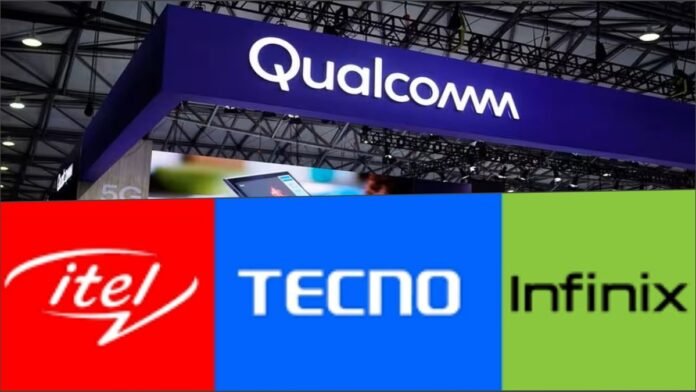
New Delhi: In a significant move, Qualcomm has initiated legal proceedings against Transsion Holdings, a major player in the smartphone market known for its brands Tecno, Infinix, and iTel. The lawsuit, filed in India, alleges that Transsion has violated four of Qualcomm’s non-standard essential patents.
The Unusual Aspect of the Lawsuit
What makes this case particularly intriguing is that Transsion does not use Qualcomm’s chips in its devices. Instead, Transsion primarily relies on MediaTek and Unisoc processors for its smartphones¹. Despite this, Qualcomm has accused Transsion of infringing on its intellectual property rights, leading to this legal confrontation.
Qualcomm’s Stance on the Matter
Qualcomm has stated that Transsion declined to accept a license for the majority of its mobile products, leaving the chipmaker with no choice but to pursue litigation to protect its patent rights. Ann Chaplin, Qualcomm’s general counsel, emphasized that the lawsuit aims to ensure fair competition and uphold the company’s intellectual property.
Transsion’s Response
In response, a spokesperson from Transsion expressed the company’s respect for third-party intellectual property rights and its willingness to negotiate licensing agreements through friendly discussions³. The spokesperson also mentioned that Transsion has signed a 5G standard patent license agreement with Qualcomm and is working to fulfill its terms.
Broader Implications and Industry Context
This lawsuit is part of a broader trend of public patent disputes involving major tech companies. Qualcomm has previously engaged in similar legal battles with other industry giants, including Apple. The outcome of this case could have significant implications for both companies and the wider smartphone market.

As the legal proceedings unfold, industry observers will be keenly watching to see how this dispute impacts the relationship between Qualcomm and Transsion, as well as the broader dynamics of the smartphone industry.











































